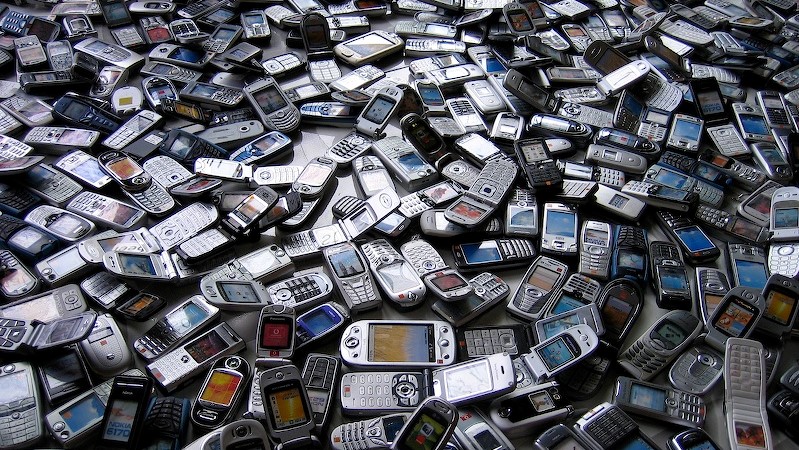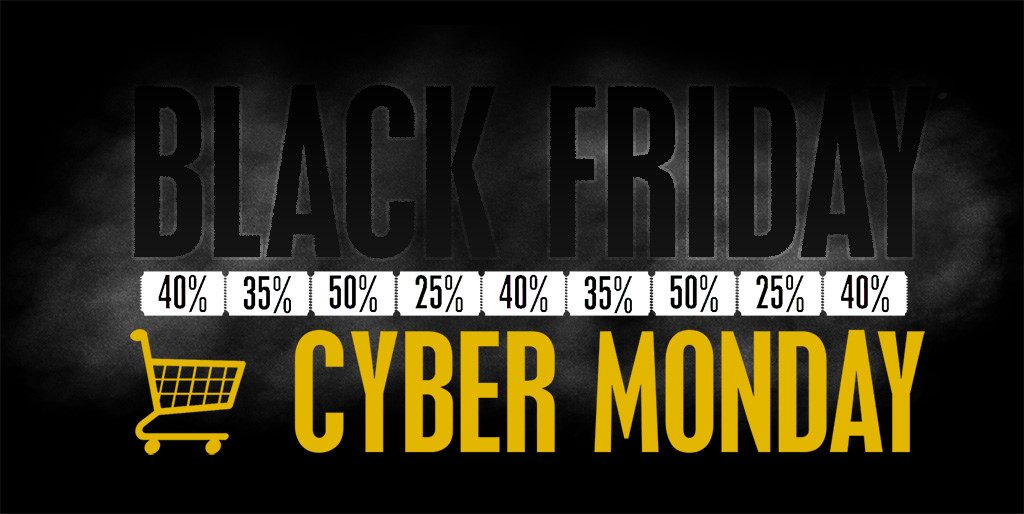E-Waste: one of the fastest growing waste streams in the world

December 20th, 2017
Electronic waste – commonly known as e-waste – is one of the world’s fastest growing waste streams. In 2016, we produced 44.7 million metric tonnes (MT) of e-waste – the equivalent of almost 4,500 Eiffel towers.
This towering pile, made up of the likes of computers, printers, televisions, mobile phones, and refrigerators, is set to continue to rise into the next century. According to the recently published Global E-Waste Monitor for 2017, over 52 million MT of e-waste will be produced in 2021.
Equally concerning is the fact that only 20 per cent of this waste, which contains chemicals and high-value materials such as gold, silver, copper, and platinum, was collected and recycled.
With these worrying global figures coming into focus, The Green News asks how does Ireland fare in the e-waste picture.

Sea of Phones Photo: Sascha Pohflepp
Ireland’s Record
Ireland is doing particularly well among EU member states since the introduction of Waste Electrical and Electronic Equipment Directive (WEEE) in 2005. In the first ten years since the introduction of the WEEE Directive, our small nation collected over 300,000 tonnes of e-waste, twice the EU target.
Worryingly, however, half of the country’s e-waste still remains unaccounted for or missing. Dr Colin Fitzpatrick of University of Limerick’s (UL) Faculty of Science & Engineering fears that a portion of this e-waste goes through “an unofficial, non-compliant recycling channel”.
“For example, if somebody has an old washing machine they may just bring it to a scrap metal merchant who shouldn’t legally take it but often does,” he told The Green News.
Dr Fitzpatrick, who co-hosted the UN University E-waste Academy at UL in 2016, said that a significant portion of Ireland’s unaccounted e-waste comes from the likes of mobile phones and other small electronic appliances. According to a 2015 report from the Countering WEEE Illegal Trade (CWIT) project, one in four Irish people throw electronic waste in the bin or store it at home.
Martin Reddy agrees that the issue is a “major concern”. The Chief Executive of RECOSI, a not for profit which refurbishes and reuses IT and electronics equipment, said that many people don’t even realise that they are keeping “hazardous” e-waste in their homes.
“We are doing a great job on larger items like washing machines but the smaller items that you can sit in the drawer, that is where my big concern is,” Mr Reddy added. He is also concerned that old mobile phone batteries are being thrown in domestic bins, ending up in landfill where heavy metals inside the batteries can contribute to soil and water pollution.

Black Friday & Cyber Monday Photo: Vanderelbe.de
Consumption rates rising
The rapid pace of technological advancement is only adding to this issue as people choose to replace their old, functioning devices with upgraded versions on an increasingly frequent basis, Dr Fitzpatrick warned. According to the latest Global E-waste Monitor, the average lifecycle for a smartphone in the EU, USA, and China is a maximum of 18 to 24 months.
Dr Fitzpatrick said that he is concerned with the “extent of electronic consumption” in Ireland, pointing to the increasing popularity of retail promotions such as Black Friday and Cyber Monday. “When I look at Black Friday, I think of the amount of energy that it takes to manufacture all the stuff people are going to buy.”
“E-waste is the natural result of consumption. We should consume less electronics in general because then we are using less energy in manufacturing and save resources,” he added.
Illegal Exports
It is currently illegal to export e-waste from the EU to developing countries under the Basel Convention, an international treaty to reduce the movement of hazardous waste across the world.
However, according to both Mr Reddy and Dr Fitzpatrick, a portion of Europe’s missing e-waste eventually ends up in developing countries, where, due to a lack of resources, e-waste is often not correctly recycled.
This fear is echoed by Dr Federico Magalini, a Research Associate at the UN University’s Solving the E-waste Problem project, who told The Green News that e-waste treatment in such countries remains a concern. Dr Magalini, who is also managing director of a sustainability consulting firm in the UK, added that the standard of recycling methods is one of his most significant concerns regarding e-waste.
“I am much more concerned by the fact that in many cases e-waste is not always treated using the technologies and infrastructures available,” he said. “In the majority of cases, players who invest in proper technologies and standards face unfair competition from other informal recyclers who simply take the ‘quick & dirty’ approach.”
Re-use and other Solutions
In order to help bring down the amount of e-waste sent for recycling, Dr Fitzpatrick is keen to see an increase in the level of e-waste sent to companies who will re-use the electronic products.
RECOSI, for example, collects e-waste from companies through the “pay it forward” initiative, rebuilding old IT equipment and donating them to disadvantaged schools, charities, and community groups.
Dr Fitzpatrick has also set up an eco-friendly website – GreenIT.ie – to sell high-quality refurbished IT equipment. “Buy refurbished if you can, consider if you really need it and recycle your old stuff in an official recycling channel,” he added.
He also suggests that the Government should make it easier for the general public to recycle e-waste material. “We’re asking people to drive to civic community sites with e-waste whereas with glass you could do it in your local supermarket, so I think it needs to be more normalised and aligned with existing recycling behaviours.”
[x_author title=”About the Author”]





